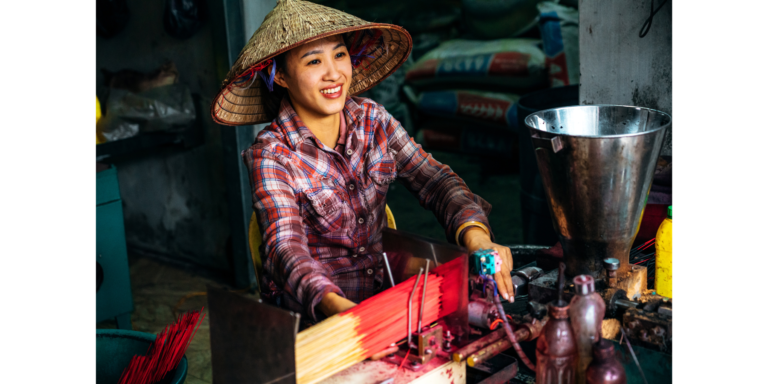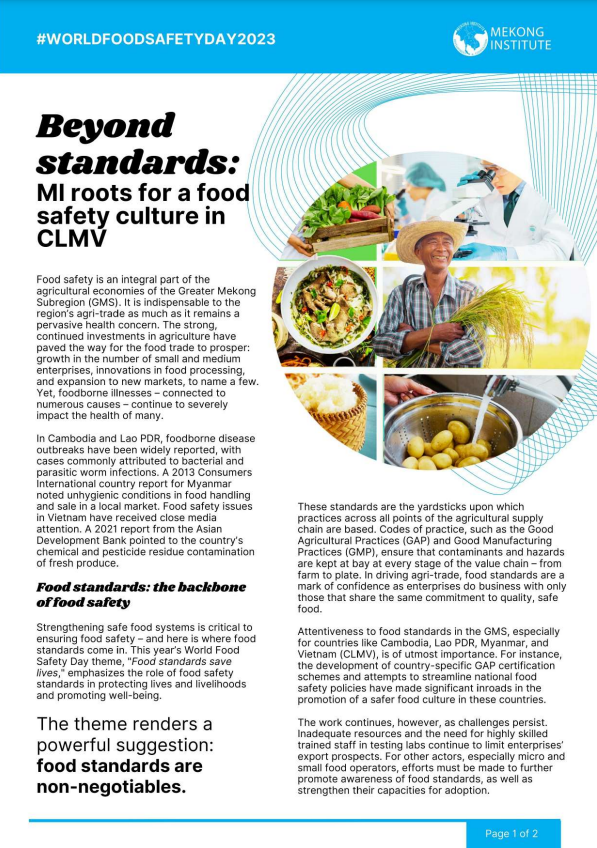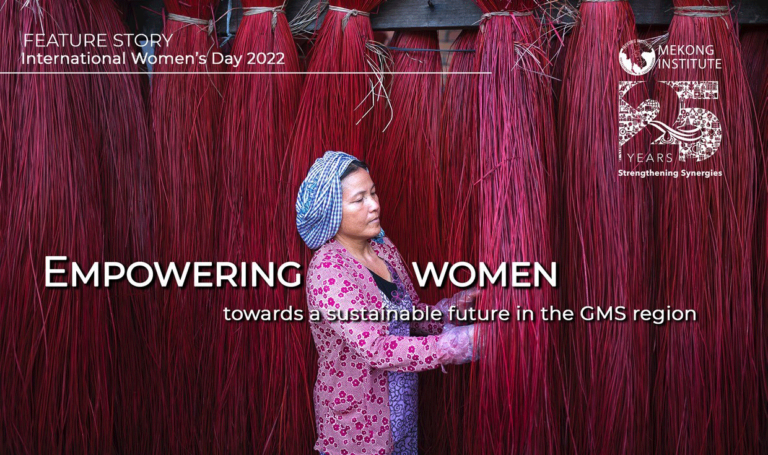GOOD THAT MARKET INFORMATION BRINGS
Pangasius, or more popularly known by its local name tra, is one of Vietnam’s major export products. Top import markets are the US and EU, and in the last couple of years, China. In 2015, the tra fish started making its way to South Korean and Russian markets, all thanks to a free trade agreement inked between Vietnam and these countries.
Can Tho, one of the biggest cities in the Mekong Delta in Vietnam, has an active pangasius cluster that has been successfully selling harvested live pangasius to a processing company in another province for the past six years.

Mr. Nguyen Ngoc Hai, leader of the Pangasius cluster, explained that while they are generally satisfied with their current business with the company, they are also unsure whether it will continue to purchase live pangasius from them. Information on market, market prices and potential buyers are certainly welcome, if only to ensure continued business for the cluster’s 20 member-households that grow pangasius.
The industry itself is also not without challenges. In recent years, pangasius farmers in Vietnam have reported a notable decrease in their harvest due to rising temperatures. Because of this, the pangasius cluster in Can Tho is even more determined to improve their production methods and learn practices that promote low-cost inputs but deliver quality harvest.
Through the initiative of the Vietnam Chamber of Commerce and Industry (VCCI) Can Tho, things seem to be looking up for the cluster. Following their participation in the MI-sponsored regional training on SME Cluster Development and Export Consortia Formation in September 2017, members of VCCI Can Tho organized a trade promotion event in the same month to introduce businesses, especially the pangasius growers, to other potential buyers from Vietnam and Cambodia.
The trade event also shared information on export market, enabling the cluster to consider other options should business with their current buyer cease. Armed with this information, the cluster is now in a much better position to negotiate with their current buyer and more confident to expand to other markets.
VCCI Can Tho has also set up an online platform where the pangasius growers can have easy access with VCCI for business consultancy and other services that will support their cluster’s growth. On this platform, for instance, VCCI has shared a book record sample of Good Agricultural Practices (GAP) in the fishery industry such as VietGAP and Farmbill (USA).
The next goal for the cluster is to leverage on their partnership with MI to access support that can improve their production process. They are keen to learn more about feeding technology and mixing LP20 (20% HK – L137), an added feed ingredient, to increase the survival rate of pangasius fingerlings. For this, the cluster has connected with House Wellness Foods Corporation (Japan) to help them apply the product.
All these would not be possible without the collaboration between the pangasius growers and VCCI Can Tho. Support services, such as a market information system, play a tremendous role in enabling small enterprises like the pangasius-growing households in Can Tho to enjoy a better position as producers, maximize markets, cushion themselves from risks, and have the opportunity to scale up and earn big.






